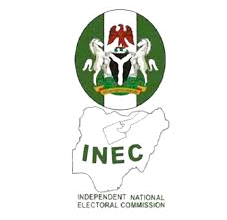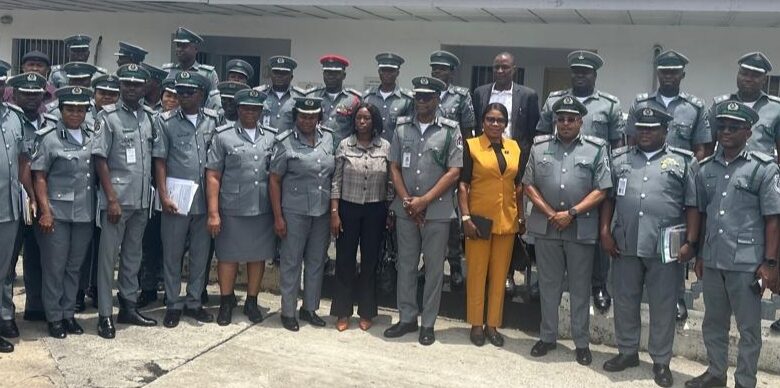
The Port and Terminal Multiservices Limited (PTML) Command of Nigeria Customs Service (NCS) has partnered with the Independent Corrupt Practices and Other Related Offences Commission (ICPC), to promote transparency and enhance the fight against corruption.
In a lecture facilitated by the NCS South Zones of Anti-Corruption and Transparency Unit (ACTU) to kick-off the collaboration, the Customs Area Controller, Comptroller Tenny Mankini Daniyan charged officers of the Command to uphold the tenet of transparency to promote fairness and productivity in the workplace.
This is according to a statement issued by the Public Relations Officer of the Command, Abdullahi Tsafe Abubakar.
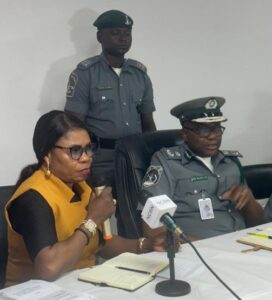
Comptroller Daniyan reminded the officers that the ongoing modernisation of the Service which is being implemented transparently is capable of making the NCS achieve better results in revenue collection, trade facilitation and anti-smuggling.
He stressed the importance of compliance with regulations, explaining that Customs’ officers should see watchdogs as partners rather than adversaries.
The Comptroller highlighted the crucial role of the Command in revenue collection, trade facilitation, and anti-smuggling efforts, revealing that over 80% of the Service’s operations are automated to enhance efficiency and accountability.
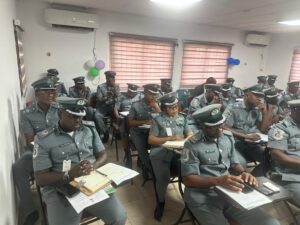
He reaffirmed that “the NCS is one of the most transparent agencies in revenue collection, as all duties are paid directly into authorized dealer banks, leaving no room for manipulation.”
“The Command is committed to beating its existing record of two hour cargo clearance time for compliant RoRo consignments if the importers and agents cooperate more with sincere declaration and timely payment of duty,” Daniyan remarked.
He disclosed that auditors from the Office of the Auditor General of the Federation frequently review the Command’s financial records at both the Command and federal levels, ensuring strict compliance with government policies.
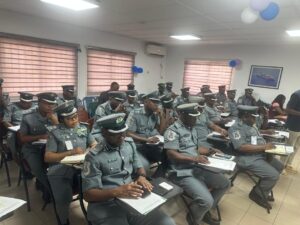
Comptroller Daniyan clarified the misconceptions that Customs’ officials collect and divert government funds, affirming that the Service operates with a high level of accountability.
This, he said, encourages officers to embrace ethical conduct and contribute positively to the agency’s mandate, thereby ensuring that the public perceives Customs as transparent.
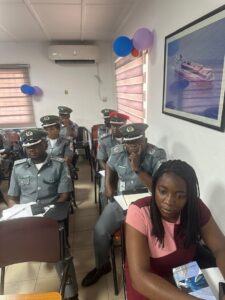
On her part, the Chief Superintendent of the ICPC on Public Enlightenment and Education, Mrs. Mary Omonoyan charged the officers of the Command to build a culture of accountability and transparency in the NCS.
Omonoyan explained that public institutions are established and run with public funds, hence, it is only fair that the public is adequately informed about their financial expenditure.
According to her, corruption, as defined by the ICPC Act of 2000, includes bribery, fraud, forgery, impersonation, abuse of official property, over-invoicing, and even sexual harassment – an area the Commission has strengthened by establishing a dedicated ‘Sexual Harassment Unit’ at the national level.
She pointed out that corruption often stems from discretionary actions in promotions, appointments, falsification of official records, employment, and disciplinary processes, emphasising that public officers have a duty to report bribery transactions, as outlined in Section 23 of the ICPC Act.
Omonoyan highlighted the pillars of ICPC’s anti-corruption fight, including enforcement, prevention, and public enlightenment.
The ICPC official continued: “To strengthen integrity in government institutions, the Ethics and Integrity Compliance Scorecard was introduced, assessing agencies on their transparency and ethical conduct. The results of these assessments help identify high-performing institutions and those requiring improvement.
“Fostering transparency and accountability in public service builds public trust, enhances effectiveness, and promotes ethical conduct. Officials are urged to practice integrity by making ethical decisions even when no one is watching.
“Officers are encouraged to report infractions, resolve public complaints efficiently, and uphold the Nigerian Customs Service’s mission and values. They should have clear job responsibilities, a strong chain of Command, and an environment where accountability thrives such as placing suggestion boxes in the Command.”
She further stated that the Commission remains committed to fostering a corruption-free Nigeria through diligent enforcement, preventive measures, and nationwide enlightenment efforts.


